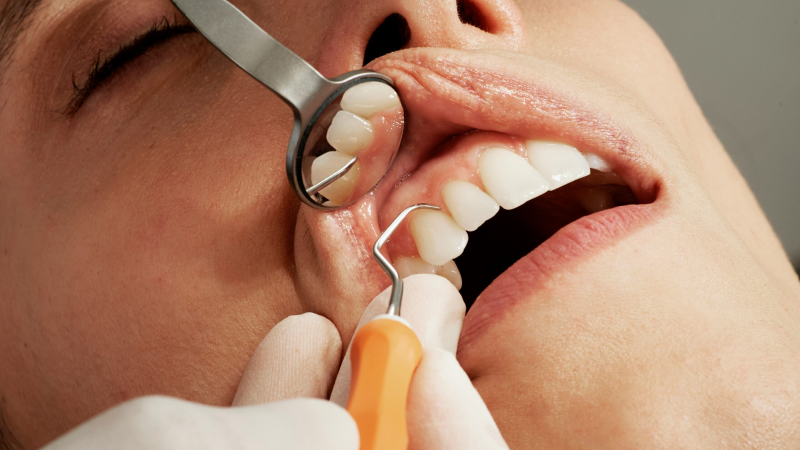Tooth sensitivity is one of those common annoyances that sounds minor until you have it. One cold drink, and it feels like someone stabbed your molar with an ice pick.
For years, dentists have offered more or less the same advice – use a special toothpaste, avoid extreme temperature food, and, well, hope for the best.
Now a team of researchers in India thinks they’ve come up with a real solution and it’s literally, on the microscopic level.
Scientists from the Indian Institute of Science, working with a Bengaluru deep-tech startup called Theranautilus, have built what they call CalBots; tiny magnetic nanobots designed to crawl deep into the tunnels of a sensitive tooth and seal them from the inside.
It sounds a lot like science fiction, but it’s already been tested. The work, published in Advanced Science, shows how these bots could offer lasting relief in a single treatment.
Here’s how it works – beneath the enamel of your tooth lies dentin, a layer full of microscopic tubes that connect to your nerves. When enamel wears down, those tubules open up, and cold air or water hits the nerve endings directly. That’s why it hurts. Regular toothpaste only plugs the surface, and the seal wears off after just a few days.
The CalBots are built differently. Each one is about 400 nanometers wide, small enough to travel into those dentin tubules. They carry a calcium-silicate bioceramic formula that reacts like natural tooth material. Under a magnetic field, the bots are guided deep inside, up to half a millimeter in some cases. Once they reach their target, they clump together and harden, forming a permanent plug that mimics natural enamel.
The team tested them on extracted human teeth. After just twenty minutes under the magnetic field, imaging showed the tubules were sealed tight with new mineral plugs. No leaks, no gaps.
Next came the animal trials. Mice were given a simple choice: drink cold water or room-temperature water. The ones with sensitive teeth avoided the cold completely until they were treated with the CalBots.
“We saw 100 per cent behavioral recovery. That was a big moment for us.” said lead researcher Shanmukh Peddi.
The results were clear enough to move the research toward clinical trials. The team says the bots could eventually be part of a standard dental procedure that only need be applied once, guided magnetically for a few minutes, and done.
Toothpastes dull the pain. CalBots, if they deliver, could end it.
Source: Bite Magazine
Read the original article on GEEKSPIN.
Affiliate links on GEEKSPIN may earn us and our partners a commission.
